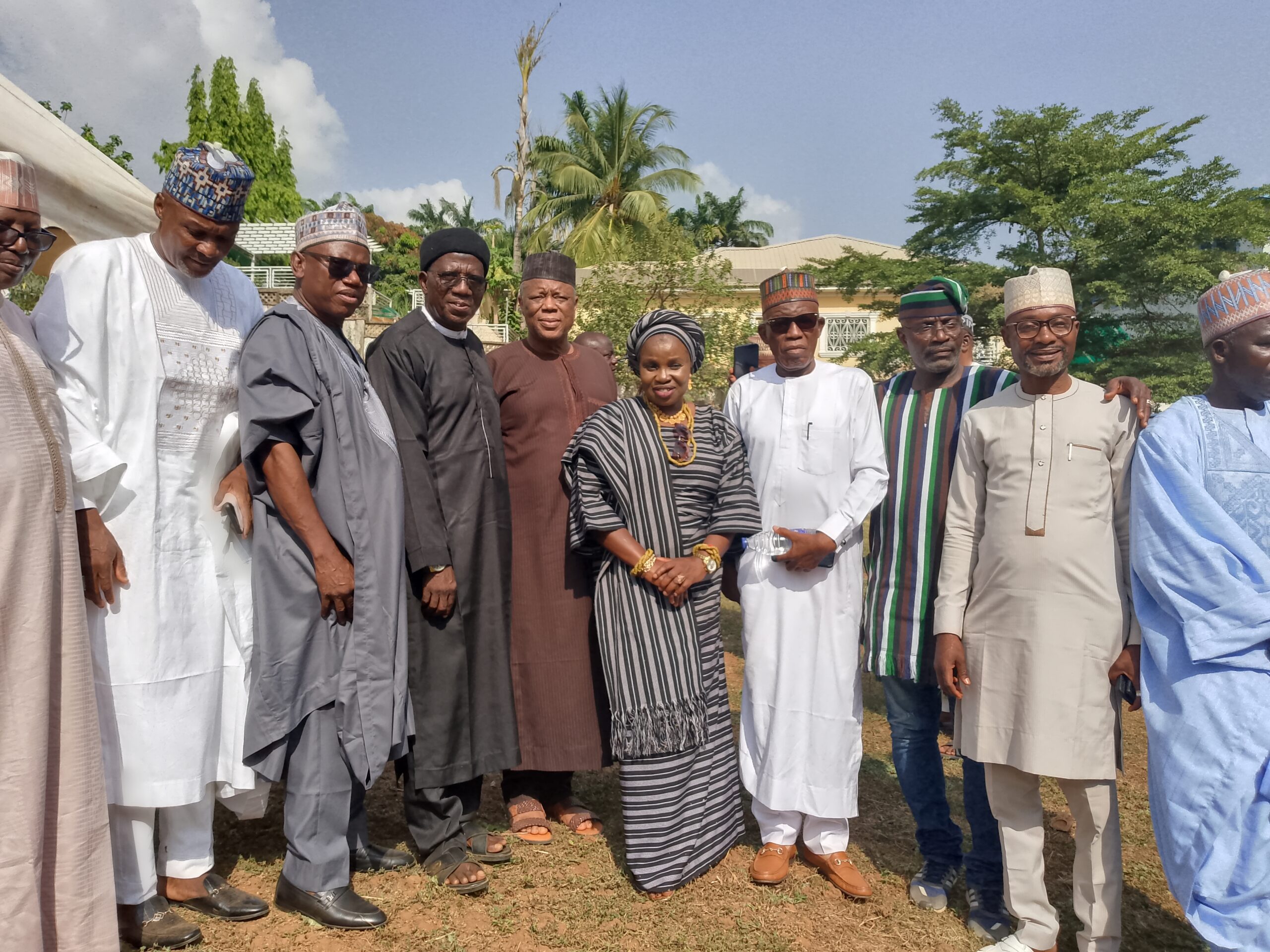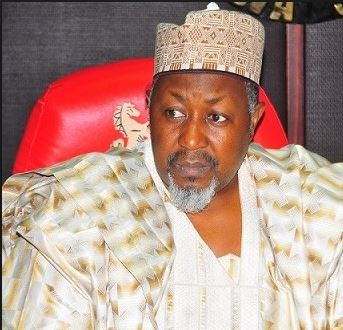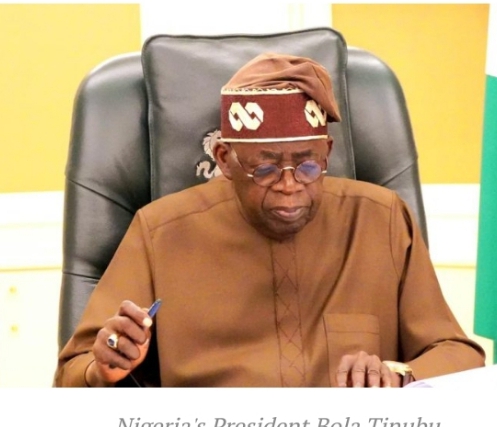Ex National Assembly Clerk, Ataba, Appeals For Unity Amongst People Of Kogi Central

Against the background of the division in the camp of the Governor of Kogi State, Alhaji Ahmed Usman Ododo and that of senator Natasha Akpoti-Uduaghan, former Clerk of the National Assembly of Nigeria, Barrister Mohammed Ataba Sani Omonori has appealed to the people of the Senatorial District to embrace true unity for accelerated development.
Barrister Ataba Omonori, who spoke yesterday, December 6, at Ozuka Agidima Worldwide Special Day in Abuja, made particular reference to the leaders in the Senatorial District.
According to the former Chief Executive Officer of the National Assembly, no single group can develop a society in isolatione except there is love and concern.
Ataba Omonori, who is second in command in the traditional hierarchy, as Ciroma of Ebiraland, advised various clan groups in the land to synergize in the interest of the area.
He also stressed the importance of fairness in the distribution of development projects and in the choice of leadership in the State in general and Ebiraland in particular.
The keynote speaker, Ambassador Momoh Jimoh Suleiman Ege supported the stand of Barrister Ataba Omonori, adding that no society can grow in a situation where the leaders and people are operating based on individual and group interest only.
The Special Day was attended by prominent members of Ozuka clan, including two former commissioners in Kogi State, Engineer Mohammed Sule and Engineer Sadiq Abdulmumuni respectfully; a 2027 Senatorial aspirant, Barrister Aliyu Saiki (SAN), Professor Joseph A. S Obansa of the University of Abuja; Ambassador Momoh Jimo Suleiman Ege and Hajiya Rekiya Fache.
 In attendance too were the friends of Ozuka, like Barrister Mohammed Ataba Sani Omonori, Barrister Saka Ali; former Speaker of the Kogi State House of Assembly and three-day acting Governor, Rt. Hon. Abdullahi Bello; a Director in the Federal Capital Territory Administration, Alhaji Mohammed Isa Agatumi Teina; traditional title hold of Onizeyiza obanyi (Dan Amana) of Ebiraland, Alhaji abu Imam; a Chairmanship hopeful in the 2026 election in Abuja Municipal Area Council, Elizabeth Ozavize Richard, amongst others.
In attendance too were the friends of Ozuka, like Barrister Mohammed Ataba Sani Omonori, Barrister Saka Ali; former Speaker of the Kogi State House of Assembly and three-day acting Governor, Rt. Hon. Abdullahi Bello; a Director in the Federal Capital Territory Administration, Alhaji Mohammed Isa Agatumi Teina; traditional title hold of Onizeyiza obanyi (Dan Amana) of Ebiraland, Alhaji abu Imam; a Chairmanship hopeful in the 2026 election in Abuja Municipal Area Council, Elizabeth Ozavize Richard, amongst others.
Ozuka Agidima Worldwide is an umbrella for one of the largest clan groups in Kogi Central Senatorial District. Members of the group, formed by Yusuf Ozi-Usman, nipr and Hajiya Halimat Musa, are in Europe, America, Asia and many parts of the world.







 Members of the NOSC are Dr. Egua as chairman; DSD NSIB Engr. Frank Odita as alternate chairman; general managers of the Flight Standards Group (FSG), safety managers of operators/service providers, SSP implementation team members and national coordinator, SSP as the head of secretariat.
Members of the NOSC are Dr. Egua as chairman; DSD NSIB Engr. Frank Odita as alternate chairman; general managers of the Flight Standards Group (FSG), safety managers of operators/service providers, SSP implementation team members and national coordinator, SSP as the head of secretariat.




Your Terrorist Is Better Treated Than Mine, By Hassan Gimba
Last week, a Federal High Court judge, James Omotosho, sentenced separatist leader Nnamdi Kanu to life in prison after convicting him on seven terrorism-related charges.
This came after a decade-long trial in which prosecutors proved that his broadcasts and orders to his banned Indigenous People of Biafra (IPOB) group incited deadly attacks on security forces and citizens.
Prosecutors had sought the death penalty, but the judge noted that “it is now being frowned upon by the international community. Consequently, in the interests of justice, and to temper justice with mercy, despite Kanu’s arrogance and lack of remorse, I hereby sentence the convict to life imprisonment … instead of the death sentence.”
Omotosho also told the court that the “right to self-determination is a political right,” but added that “any self-determination not done according to the constitution of Nigeria is illegal.”
However, the arrest, trial, and subsequent conviction of Kanu have revealed a nasty side of us as a people.
Those sympathetic to him—mostly from his geopolitical zone—believe the government mistreated him, arguing that terrorists from other zones are negotiated with, granted amnesty, and rehabilitated. They accuse the government of double standards, especially when compared with its handling of notorious bandit leaders like Bello Turji, who operates in the North West. Even ace broadcaster Rufai Oseni confronted the government, questioning why terrorists who abducted schoolgirls in Kebbi were allowed to walk free while Nnamdi Kanu faces maximum punishment.
On 11 July 2021, in a piece titled “Between Kanu, Igboho, Gumi and Southern Governors,” I wrote: “A Methodist Bishop ridiculously said he would stand by Kanu as long as ‘northerners stand by Pantami and Gumi.’ A well-known southern columnist also questioned how Kanu and Igboho were arrested, while Gumi got a slap on the wrist.
“What they refuse to accept is the fact that Kanu is a terrorist in the class of Shekau. A fugitive from justice who jumped bail while standing trial in a court of competent jurisdiction. Whereas he picked up arms against his country, the others did not. He instigated people to kill through electronic messages; the others did not.
“He calls for the balkanisation of the country. Perhaps being a second-class British citizen, he sees Nigeria as a ‘zoo’ and Nigerians as animals. His gullible followers, Nigerians through and through, accept being animals in a country that is a zoo. Maybe because most of his followers are those frustrated with their lives, they find solace in living in utopia. They claim they are Jews.
“Laughable as it was, with no historical or biological evidence to support the phantasmagoric claim, they do not know, nor do they seek to understand, the history of the Ethiopian Jews. The Ethiopian Jews, immigrants and descendants of immigrants from Beta Israel, known as the Falashas (Falash Mura), trace their history back to 325 CE, when Ezana became emperor of Axum.
“And even with this rich and ancient history, the ‘real’ Jews did a DNA test to confirm their Jewishness. They studied samples from Falasha Jews and Ethiopians with the Y-chromosome-specific DNA probe to screen for TaqI restriction polymorphisms and haplotypes.
“Two haplotypes (V and XI) are the most widespread in Falashas and Ethiopians, representing about 70% of all haplotypes in Ethiopia. Because the Falasha population lacks Jewish haplotypes VII and VIII, they concluded that the Falasha people descended from ancient inhabitants of Ethiopia who converted to Judaism. Therefore, they do not have the same rights as the real Jews in Israel.
“So, just because you wake up in a state of hallucination, start wearing the Jewish kippah or yarmulke (also called kappel or skullcap), drape over your shoulders their tallit and hold their tzitzit (rosary), and call yourself a Jew does not make you one—just as speaking through the nose and decking yourself in a three-piece suit does not make you a white man.
“Claiming to be them and calling your country a zoo will not make Netanyahu come to your aid when caught by nemesis. He does not even know you exist. The world sees you for what you are: a madman. No wonder one of his incoherent phrases that his demented followers love parroting is ‘mad people everywhere,’ not knowing it is about them.”
Both Kanu and Turji have committed heinous crimes against the people. Both have killed or caused the killing of innocent civilians, military personnel, and other members of our security agencies. This is true of Shekau as well, long before Turji appeared on the scene. I recall the comparison I made between Imam Shekau and Mazi Kanu in my write-up of 24 July 2022, “Open Letter to Ndigbo,” where I wrote: “Perhaps the only difference between the leader of the terrorist organisation in your area and that of Boko Haram is that Boko Haram’s Imam is in the trenches with his troops while your Mazi is with his family, ensconced in the White man’s land, feeding fat at your expense. No wonder someone referred to him as a ‘made-in-China Shekau’.”
That notwithstanding, our penchant for rivalry and fighting one another like step-siblings has brought us to the sorry pass where we hate other terrorists but embrace those who share our language and ethnicity.
So, for us to start “fighting” over how “our terrorist” is being “maltreated” and raising our blood pressure because “your terrorist” is being “pampered” is simply mind-boggling. Can people really go this low?
For too long, we have allowed sentiment to cloud our utterances and actions. It is high time we treated criminals without undue regard to their race or religion. Partial tolerance of terrorism will destroy us.
Hassan Gimba is the Publisher and Editor-in-Chief of Neptune Prime.